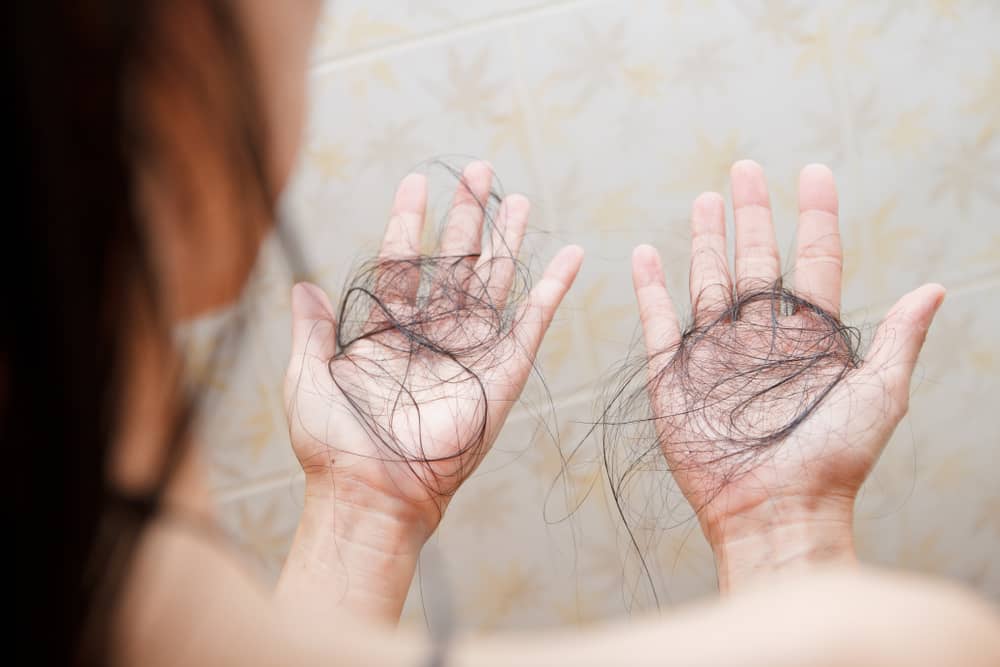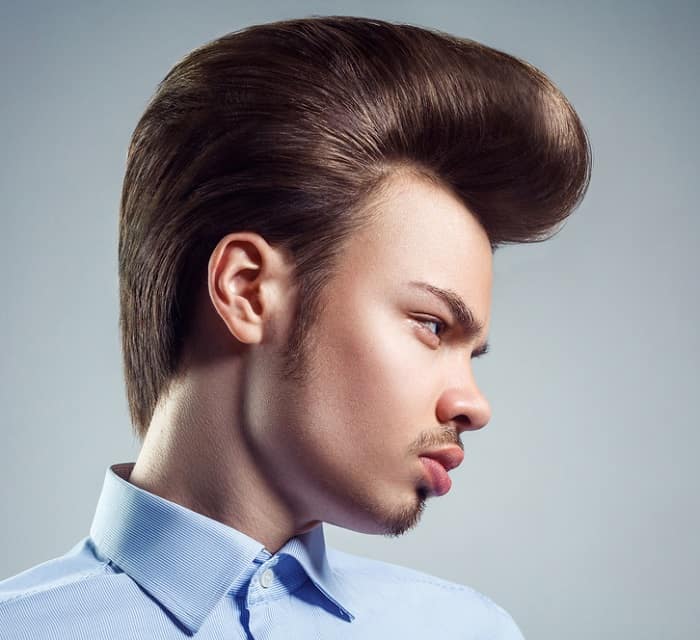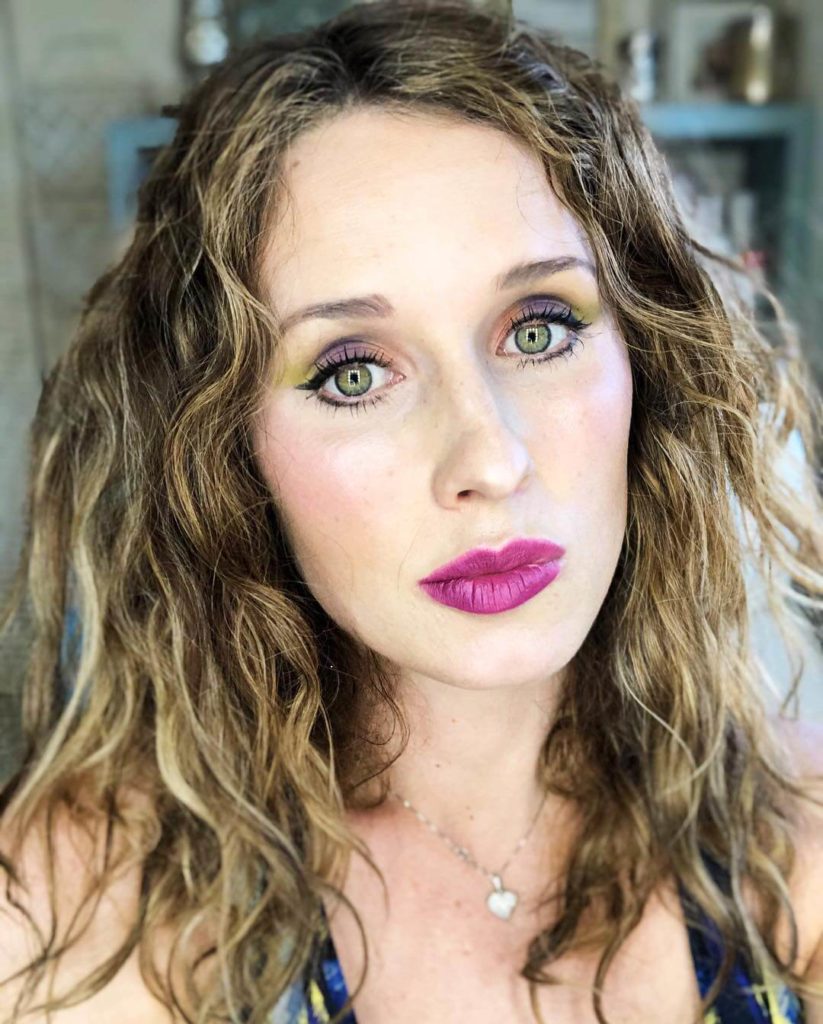What happens to hair postpartum is much different from during pregnancy. Typically, women start seeing accelerated hair loss at around.
Can Postpartum Cause Hair Loss, Before you go mad and take a pair of scissors to your thinning locks of hair, keep on reading to learn more about this common form of hair loss. Not only do you get morning sickness, put on loads of weight, change shape and suffer all sorts of aches and pains, but when it’s all over, you might suffer hair loss too!

With te and postpartum hair loss, it’s the major impact of childbirth on the body that triggers hair loss and it can take up to several months after birth for the hair shedding to happen. Topical progesterone and estradiol lotions are used to manage postpartum hair loss. What else contributes to postpartum hair loss. Iron deficiency can lead to hair loss in the postpartum period.
It usually starts within five months of giving birth and starts slowing down about three months or so after that.
The best way to get enough iron is through diet, but if that is not possible, then supplementation may be necessary. In some cases, a thyroid issue such as having an overactive thyroid may be causing the hair loss. Or, if your condition is the result of stress, a certain type of medication could cause your hair to fall out. But try not to let it get you down too much. It adds more lustre and volume to their hair. What else contributes to postpartum hair loss.
 Source: popsugar.com
Source: popsugar.com
Plus, find out when you can expect postpartum hair loss to curb and the best products to use in the meantime. Your estrogen level, in particular, drops. There are many reasons why omega 3s are important for hair health. Using hot styling tools can cause postpartum hair breakage and loss shutterstock if you are shedding strands or clumps after giving.

But try not to let it get you down too much. Hair loss after pregnancy is common and often not a cause for concern. However, in this case, it is more likely that you may be experiencing hair loss due to hormonal. Treatments in the form of thyroid supplementation, topical progesterone and estradiol lotions, and an oral contraceptive have been.
 Source: pinterest.com
Source: pinterest.com
Or, if your condition is the result of stress, a certain type of medication could cause your hair to fall out. Treatments in the form of thyroid supplementation, topical progesterone and estradiol lotions, and an oral contraceptive have been studied. That decrease causes postpartum hair loss. Your estrogen level, in particular, drops. Unfortunately, after your baby is born, your hormone.
 Source: pinterest.com
Source: pinterest.com
Postpartum hair loss occurs post child birth. Women often describe postpartum hair loss as a synchronized shedding phase that starts 6 to 12 weeks after childbirth. Postpartum hair loss is noticeable because it�s much more than the 100 hairs a person typically loses per day. There is no evidence to support that breastfeeding causes or increases hair loss. In some.
 Source: top10homeremedies.com
Source: top10homeremedies.com
When it does, any hair follicle that moved into the telogen phase after birth is likely to shed its hair, even though hair doesn’t typically fall out in the telogen phase. It usually starts within five months of giving birth and starts slowing down about three months or so after that. Postpartum hair loss is the process of hair thinning.
 Source: pinterest.com
Source: pinterest.com
Another possible cause of hair loss is an iron deficiency. Hair loss after pregnancy is common and often not a cause for concern. When you’re pregnant, your hormones prevent that hair loss, so many women have the thickest, shiniest hair they’ve ever enjoyed. Below, read why hair loss happens and get expert advice on how to slow hair shedding. The.
 Source: pinterest.com
Source: pinterest.com
When you’re pregnant, your hormones prevent that hair loss, so many women have the thickest, shiniest hair they’ve ever enjoyed. This postpartum hair loss can feel precipitous and. Postpartum hair loss is the process of hair thinning or shedding after giving birth. Anemia can also occur from delivery. Most women will return to their usual hair growth cycle between 6.
 Source: pinterest.com
Source: pinterest.com
If your doctor diagnoses a thyroid condition, he or she will be able to recommend treatment. What happens to hair postpartum is much different from during pregnancy. While these quick hormonal changes that rework the hair�s growth and rest cycle are one of the biggest reasons behind postpartum hair loss, excessive shedding can also be caused by an iron deficiency.
 Source: healthywealthyvida.com
Source: healthywealthyvida.com
Few articles examine the treatment of this condition. There are many reasons why omega 3s are important for hair health. Postpartum hair loss occurs post child birth. It usually starts within five months of giving birth and starts slowing down about three months or so after that. The possible underlying reasons for postpartum hair loss can include:
 Source: cornerofhopeandmane.com
Source: cornerofhopeandmane.com
Hair loss is normal and part of the postpartum process that your body undergoes. This causes postpartum hair loss. Prolactin is another pregnancy hormone found to play a role in postpartum hair loss. Well, stress can trigger hair fall. Not only do you get morning sickness, put on loads of weight, change shape and suffer all sorts of aches and.
 Source: pinterest.com
Source: pinterest.com
Not only do you get morning sickness, put on loads of weight, change shape and suffer all sorts of aches and pains, but when it’s all over, you might suffer hair loss too! Postpartum alopecia is a diffuse shedding of scalp hair that can begin two to five months following parturition. The technical name for this type of hair loss.
 Source: pinterest.com
Source: pinterest.com
Postpartum hair loss is a normal and temporary postpartum change that is unrelated to breastfeeding. Hair loss is normal and part of the postpartum process that your body undergoes. When it does, any hair follicle that moved into the telogen phase after birth is likely to shed its hair, even though hair doesn’t typically fall out in the telogen phase..
 Source: minggu.xyz
Source: minggu.xyz
Most women will return to their usual hair growth cycle between 6 and 12 months after birth. Your estrogen level, in particular, drops. Few articles examine the treatment of this condition. Some thyroid conditions are also linked to pregnancy or the postpartum period. If you’ve noticed these symptoms, you’re probably suffering a little afterbirth side effect known as postpartum hair.
 Source: physicalkitchness.com
Source: physicalkitchness.com
While these quick hormonal changes that rework the hair�s growth and rest cycle are one of the biggest reasons behind postpartum hair loss, excessive shedding can also be caused by an iron deficiency (significant blood loss during delivery could be a triggering event), the sheer emotional and physical stress of giving birth, dietary changes. The possible underlying reasons for postpartum.
 Source: pinterest.com
Source: pinterest.com
It usually starts within five months of giving birth and starts slowing down about three months or so after that. “many new moms see noticeable hair loss a few months after having a baby,”. A lot of women tend to associate postpartum hair fall with the stress of having a newborn baby. Not what new mothers need when they have.
 Source: cornerofhopeandmane.com
Source: cornerofhopeandmane.com
Most women will return to their usual hair growth cycle between 6 and 12 months after birth. While these quick hormonal changes that rework the hair�s growth and rest cycle are one of the biggest reasons behind postpartum hair loss, excessive shedding can also be caused by an iron deficiency (significant blood loss during delivery could be a triggering event),.
 Source: pinterest.com
Source: pinterest.com
Postpartum hair loss is majorly due to the depletion of estrogen levels in the body. If you’ve noticed these symptoms, you’re probably suffering a little afterbirth side effect known as postpartum hair loss. By then, you probably feel a lot better, and you may not consider yourself postpartum, but you are. Changes to your immune system. Well, stress can trigger.
 Source: megmcmillin.com
Source: megmcmillin.com
Or, if your condition is the result of stress, a certain type of medication could cause your hair to fall out. During pregnancy, your high levels of estrogen prevented your usual rate of hair loss. The best way to get enough iron is through diet, but if that is not possible, then supplementation may be necessary. However, in this case,.
 Source: youtube.com
Source: youtube.com
Many new moms notice hair loss sometimes quite dramatic around three months postpartum. Typically, women start seeing accelerated hair loss at around. Postpartum hair loss is the process of hair thinning or shedding after giving birth. Postpartum hair loss is perfectly normal. Unfortunately, after your baby is born, your hormone levels change significantly.
 Source: pinterest.com
Source: pinterest.com
Typically, women start seeing accelerated hair loss at around. Theres no doubt about it postpartum hair loss can be a tough pill to swallow. Some thyroid conditions are also linked to pregnancy or the postpartum period. When you’re pregnant, your hormones prevent that hair loss, so many women have the thickest, shiniest hair they’ve ever enjoyed. Prolactin promotes mammary gland.
 Source: pinterest.com
Source: pinterest.com
Iron deficiency can lead to hair loss in the postpartum period. Using hot styling tools can cause postpartum hair breakage and loss shutterstock if you are shedding strands or clumps after giving birth, you should probably lay off the electronic styling tools for a while, as heat is another cause of hair loss, according to an interview with hairstylist melanie.
 Source: mommylabornurse.com
Source: mommylabornurse.com
It adds more lustre and volume to their hair. For example, if your condition is a result of a medical condition, your doctor will probably prescribe a medication to treat your baldness. Postpartum hair loss is majorly due to the depletion of estrogen levels in the body. That decrease causes postpartum hair loss. There is no evidence to support that.
 Source: pinterest.com
Source: pinterest.com
Postpartum hair loss is noticeable because it�s much more than the 100 hairs a person typically loses per day. So after your baby arrives and your hormone levels drop, your hair makes up for lost time by falling out in much bigger clumps than it normally does. Postpartum hair loss is perfectly normal. Another possible cause of hair loss is.
 Source: pinterest.com
Source: pinterest.com
Postpartum hair loss is incredibly common, and it�s important to note that it�s not a permanent condition. So after your baby arrives and your hormone levels drop, your hair makes up for lost time by falling out in much bigger clumps than it normally does. Postpartum hair loss is perfectly normal. Postpartum hair loss is majorly due to the depletion.
 Source: healthline.com
Source: healthline.com
The effect is compounded by your increased blood volume and circulation, which also causes your hair to fall out less than normal. What else contributes to postpartum hair loss. It adds more lustre and volume to their hair. The hair loss and regrowth will probably be most apparent in the area above your forehead. This postpartum hair loss can feel.









